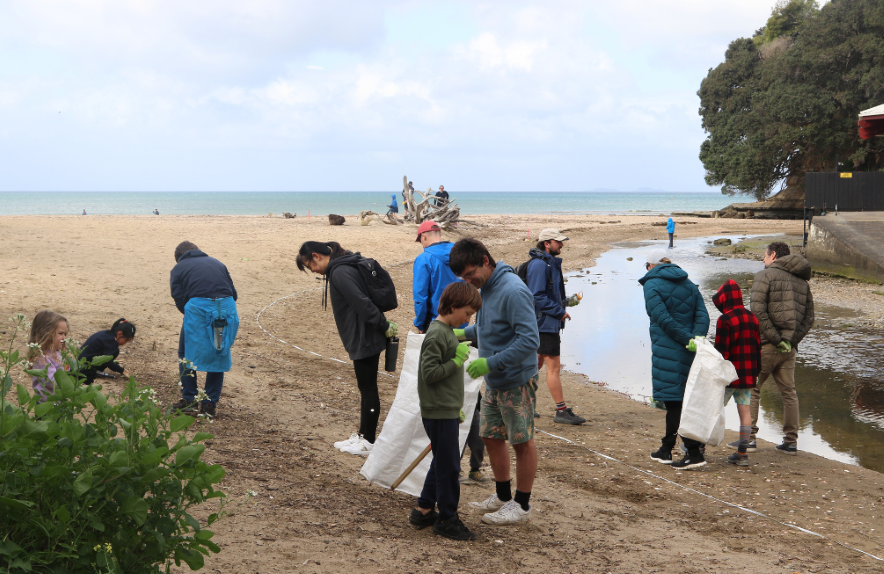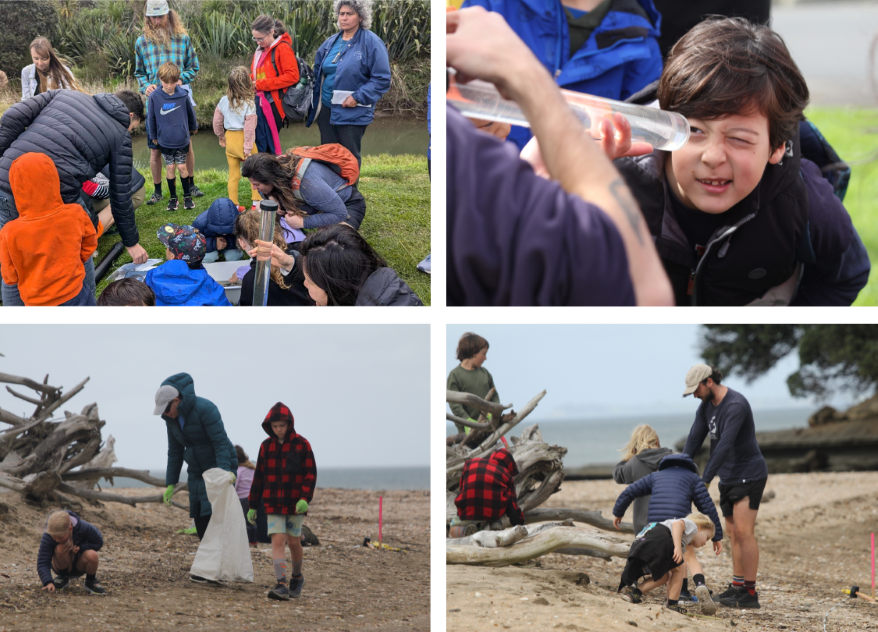
Community Event for Conservation Week
On Saturday 7 September, a collaborative event at Sir Peter Blake MERC offered an opportunity for everyone to participate in a hands-on citizen science session at Long Bay. Wai Care and Sustainable Coastlines facilitators joined us for this event, with Teresina and Dan sharing how their respective organisation's use citizen science to influence change and improve our understanding of our environment. We had a great gathering of people, with nearly 50 participants of all ages!
Experiencing monitoring methods
In Wai Care’s monitoring session of the Awaruku Creek beside MERC, participants were shown how to measure water quality indicators, such as temperature, water clarity and dissolved oxygen concentration. They also learnt how to collect samples of, and identify, freshwater macroinvertebrates.
In the Sustainable Coastlines litter survey, participants took part in a beach clean-up and litter audit on Long Bay beach. They collected and categorised items within a specified survey area and added their data to Litter Intelligence’s publicly available online database.
.png)
What they found
The water quality indicators from the Wai Care survey found the state of Awaruku stream to be average. For example, the water temperature was measured to be 17°C which is quite warm for late winter/early spring. Teresina suggested this reading could be due to unshaded sample area or a result of nutrient breakdown from fertilizer, compost or stormwater run-off in the catchment area. However, the stream had good clarity and macroinvertebrates like snails and shrimp were found in the sample area.
The data collected from the litter intelligence survey showed that the state of litter at Long Bay was worse than other New Zealand beaches but comparatively better to past audits of the same survey area. A total of 271 items were found during the litter survey, forming an average litter density of 452 items per 100m2, and over 50% of these items were plastic. Dan explained how the survey environment often changes with weather and tides which can alter the plastic loads. One of the most common form of plastic they found during the beach clean-up was lollipop sticks. You can explore this data on the Litter Intelligence website.

The final portion of the event featured exciting presentations from MERC, Wai Care and Sustainable Coastlines. Participants learnt about the Long Bay Marine Reserve and how projects like iNaturalist help specialists know species distributions. Teresina from Wai Care discussed how the data from their freshwater monitoring programme supports groups wanting to make a difference for their local waterways, and Dan from Sustainable Coastlines introduced Litter Intelligence and how this project’s data has driven change for our marine environments.
Links to Learn More
Wai Care is a water quality programme across Auckland that enables communities to learn about the health of their local waterways.
Litter intelligence is Sustainable Coastline's national litter monitoring programme that equips communities to collect data and gain an understanding of litter density and items most commonly found in marine and freshwater environments.
iNaturalist is an international citizen science platform where participants can upload photo observations of species to a publicly accessible database.
Thanks to the New Zealand National Commission for UNESCO for supporting this event as part of our Seaweek Ngā Kōrero series.
.png)